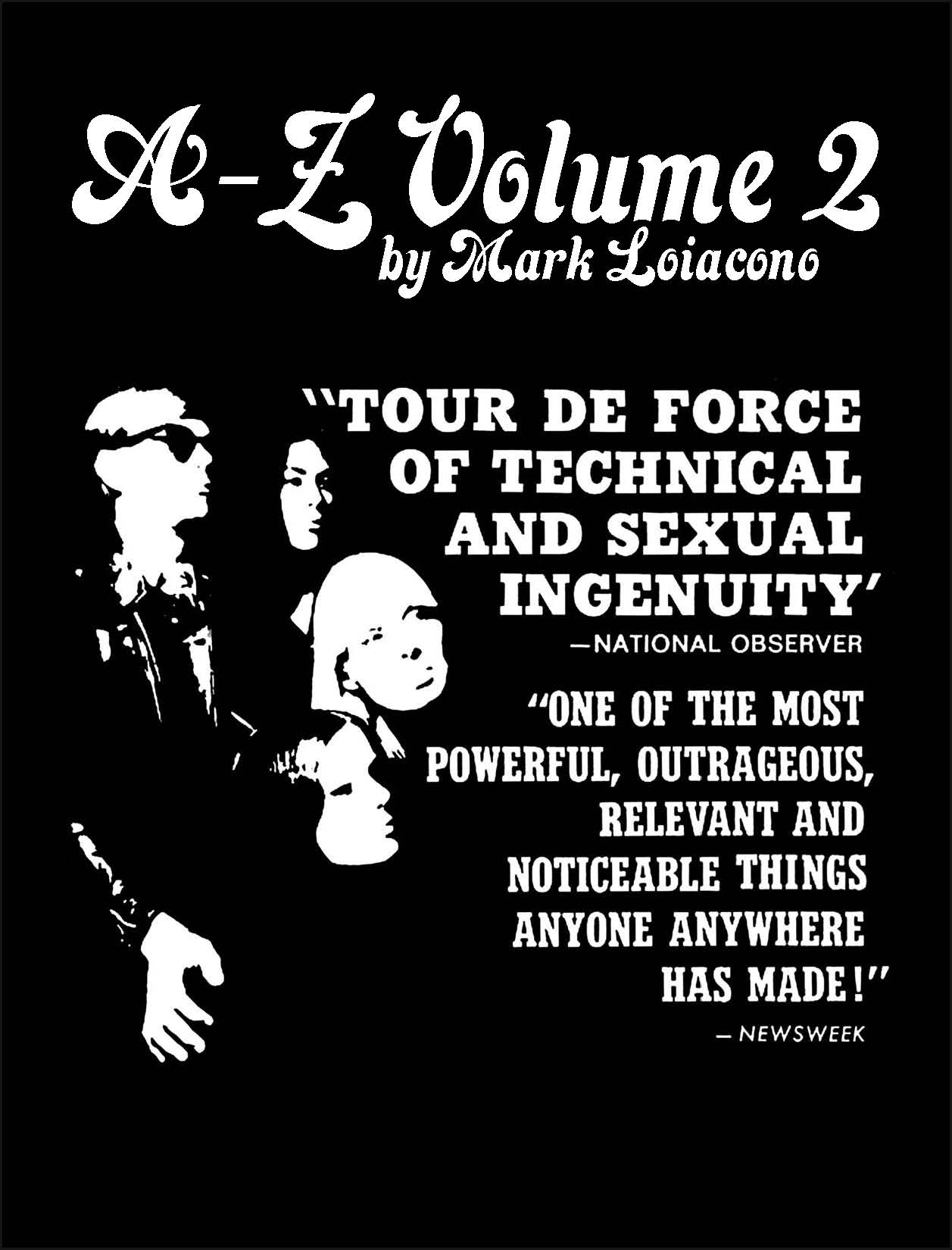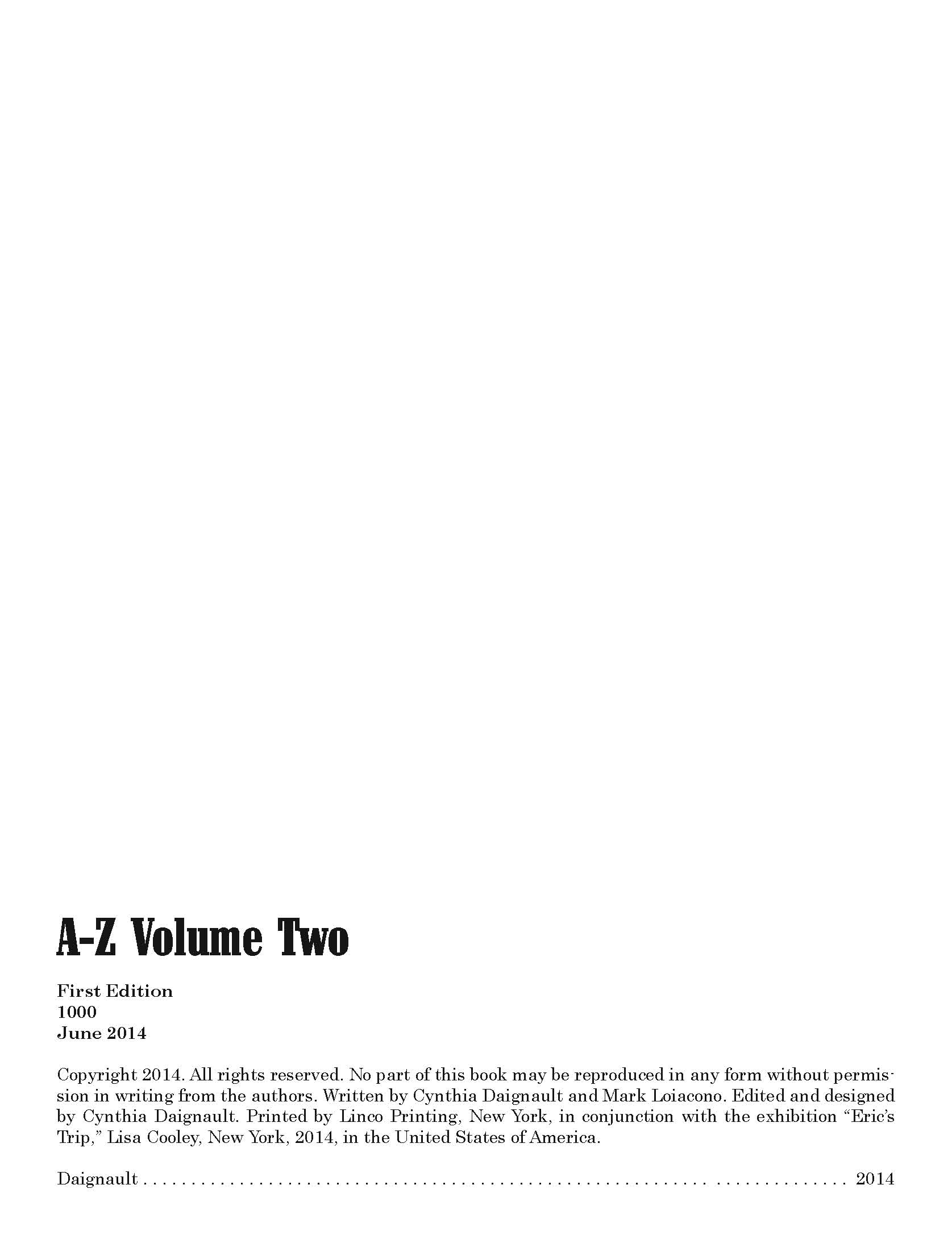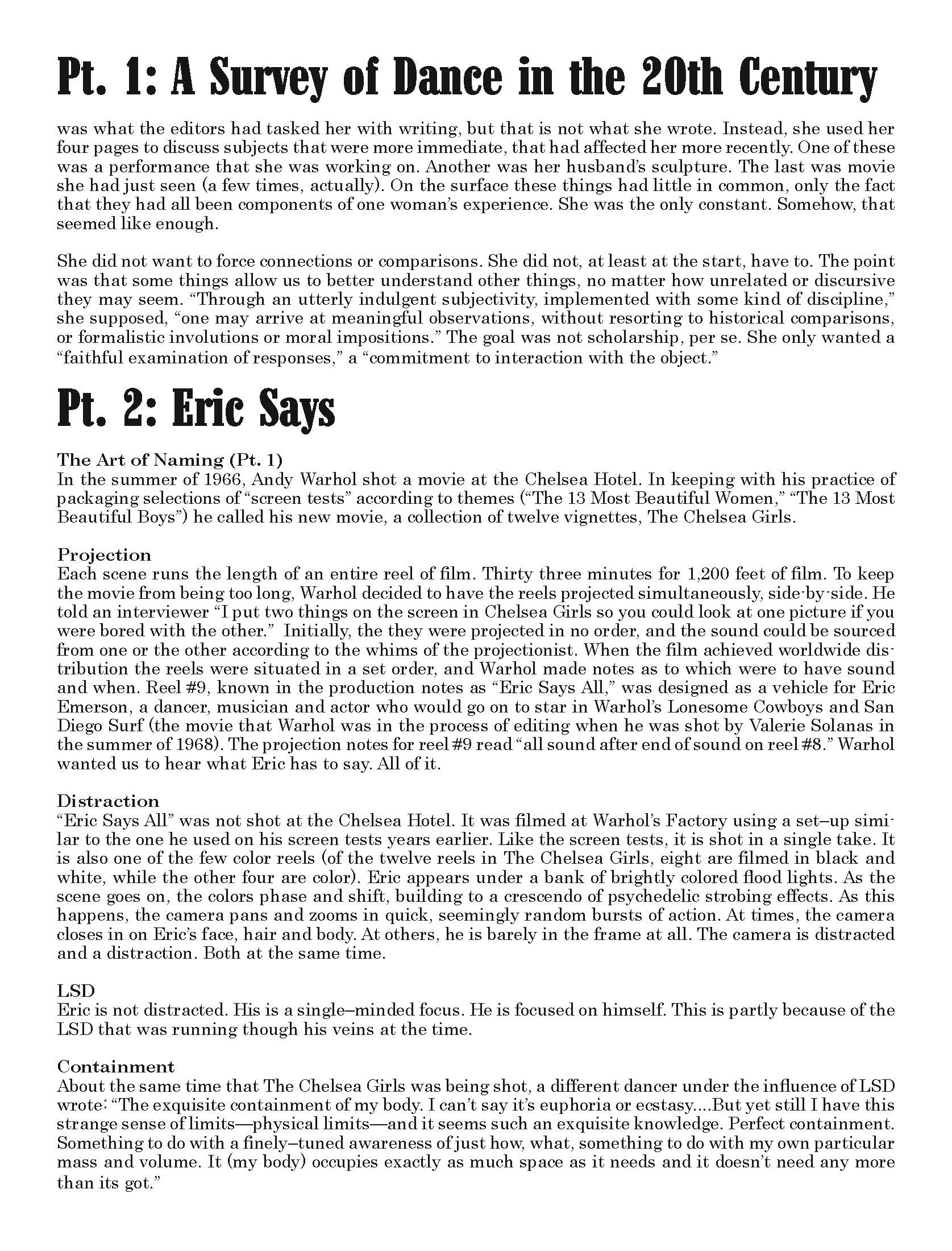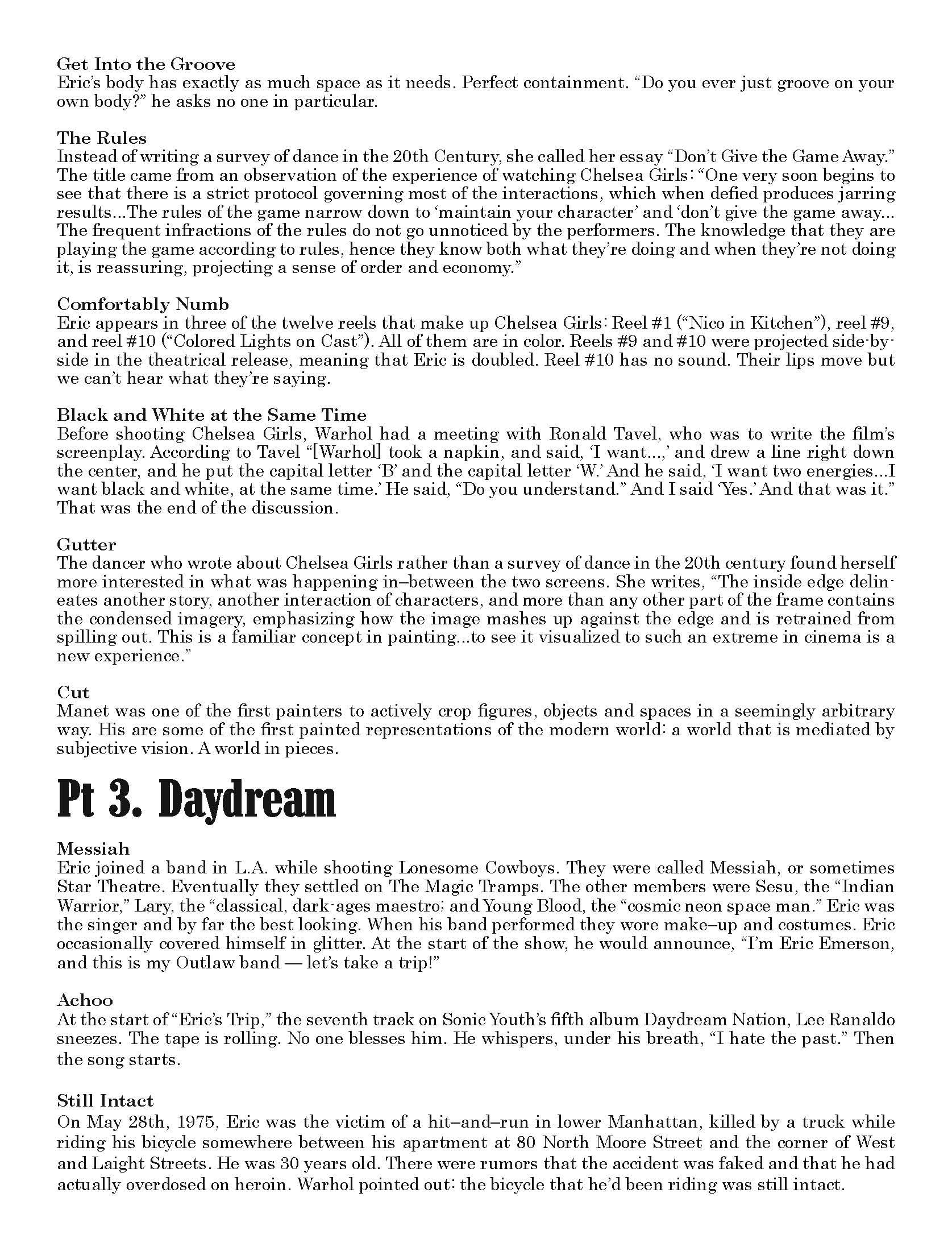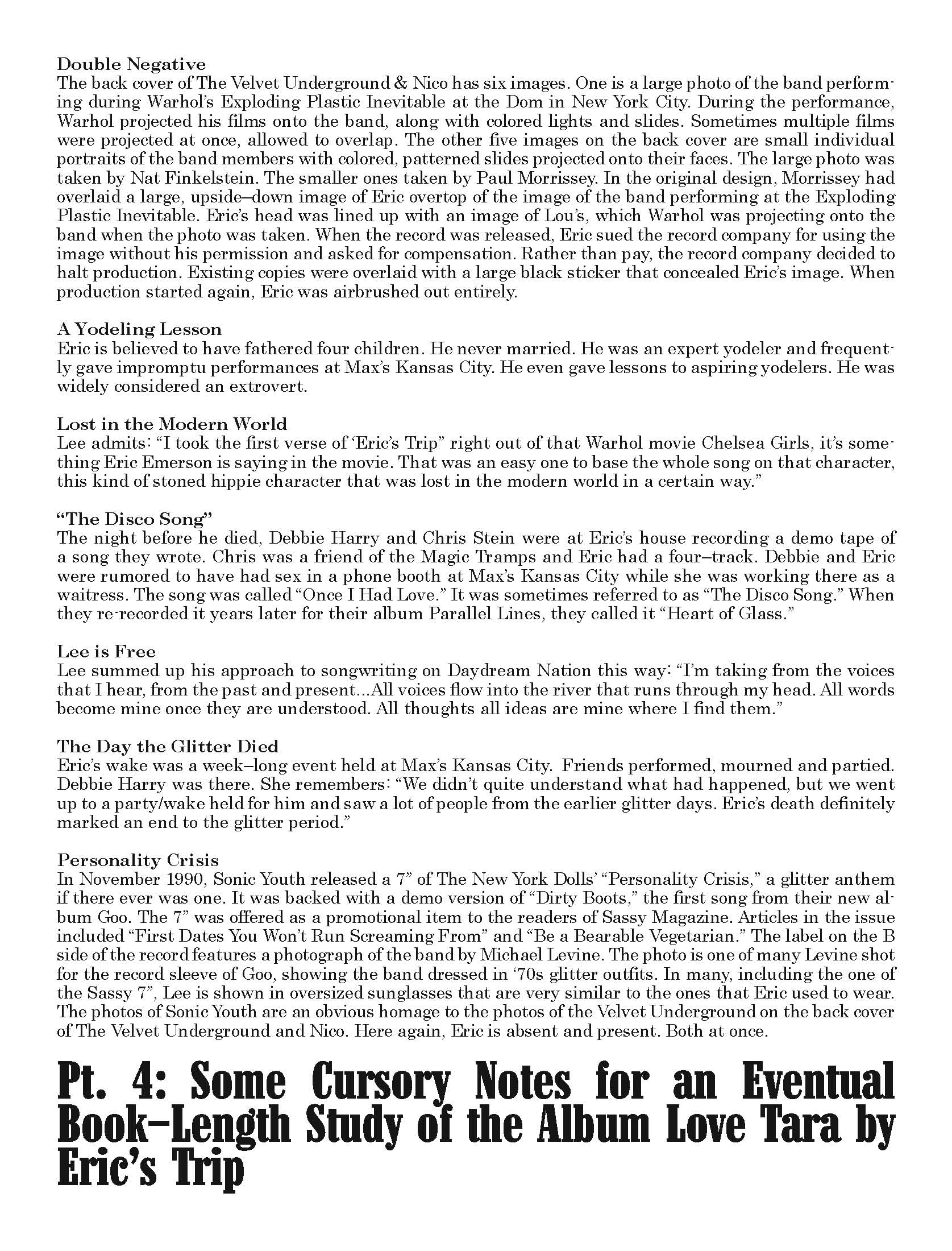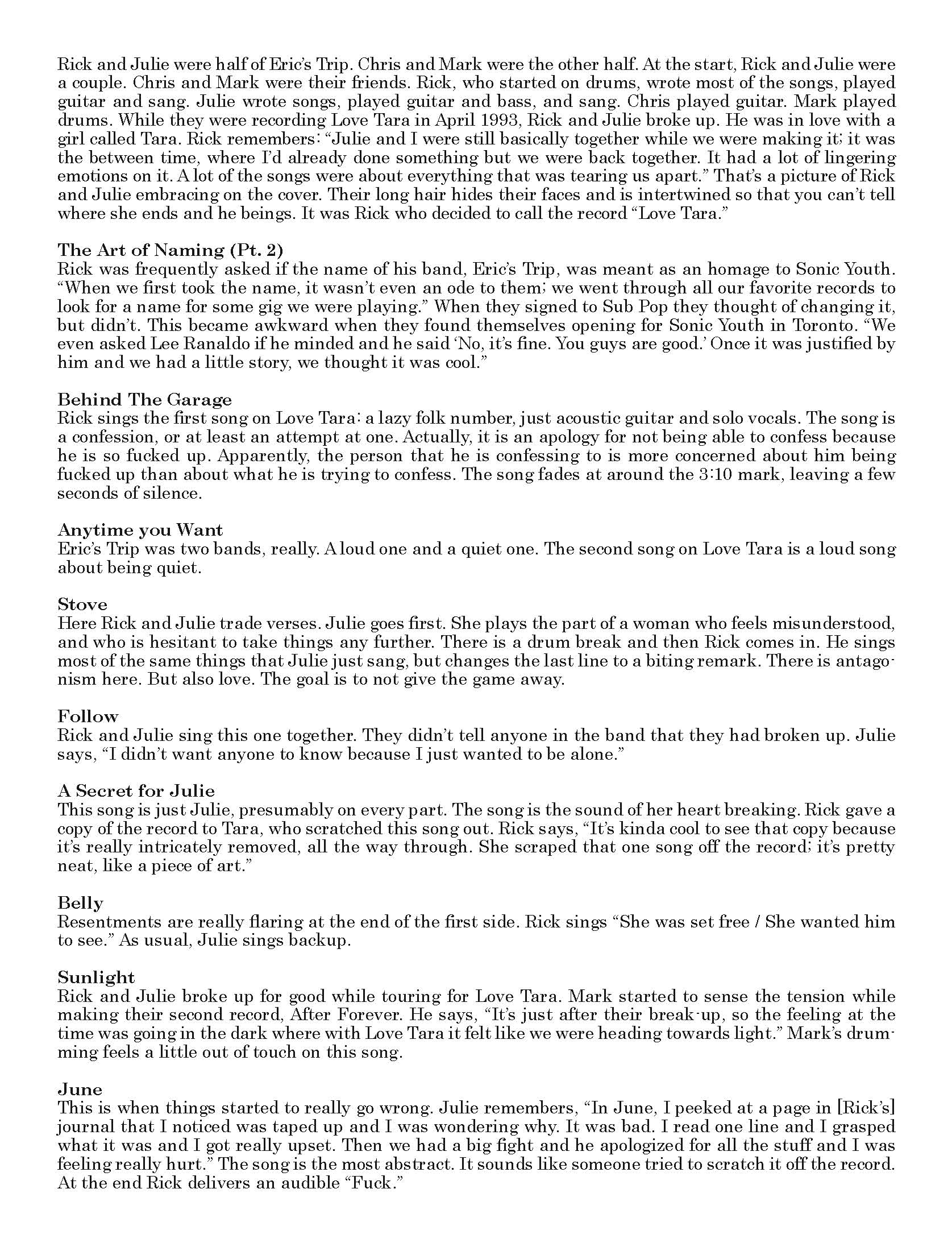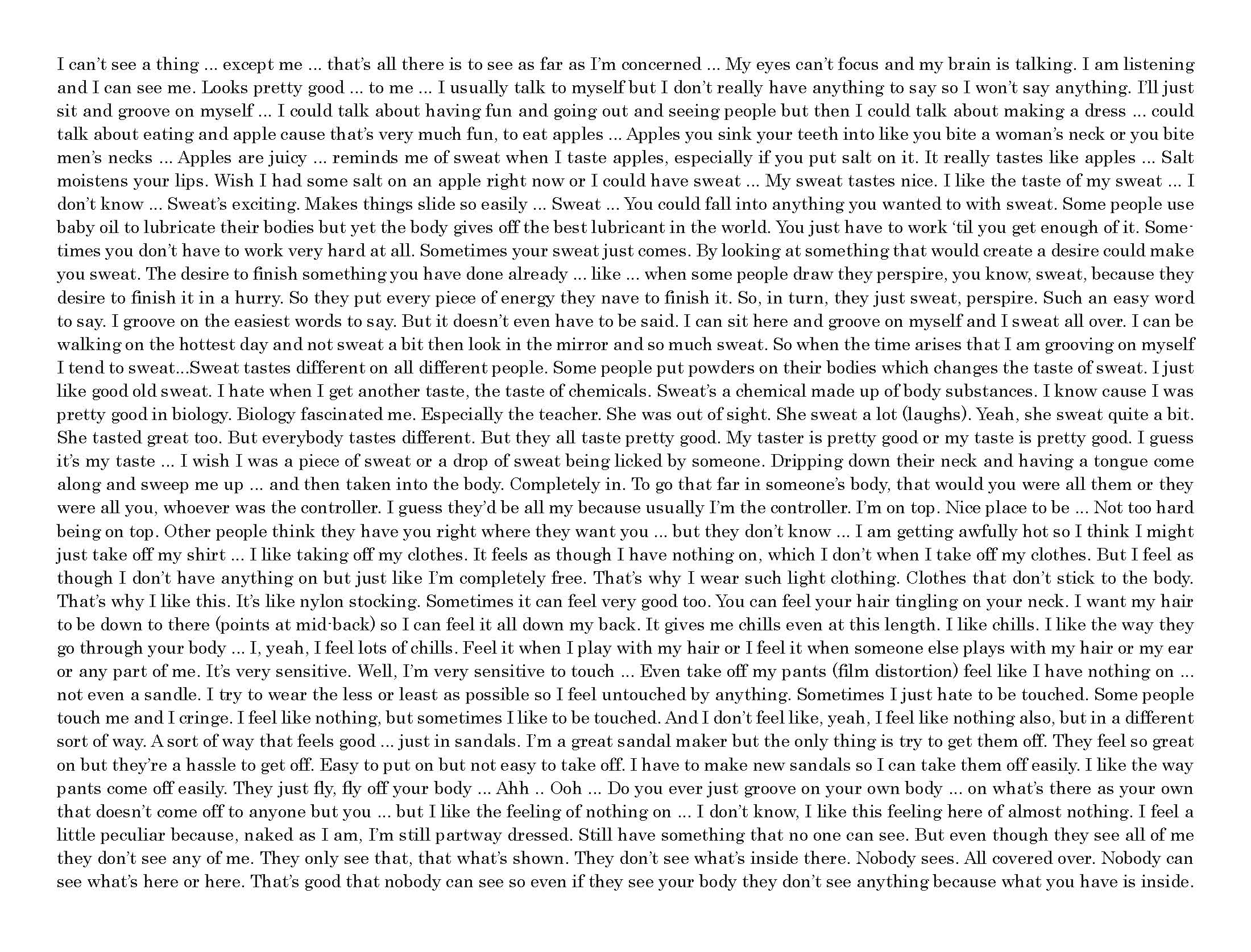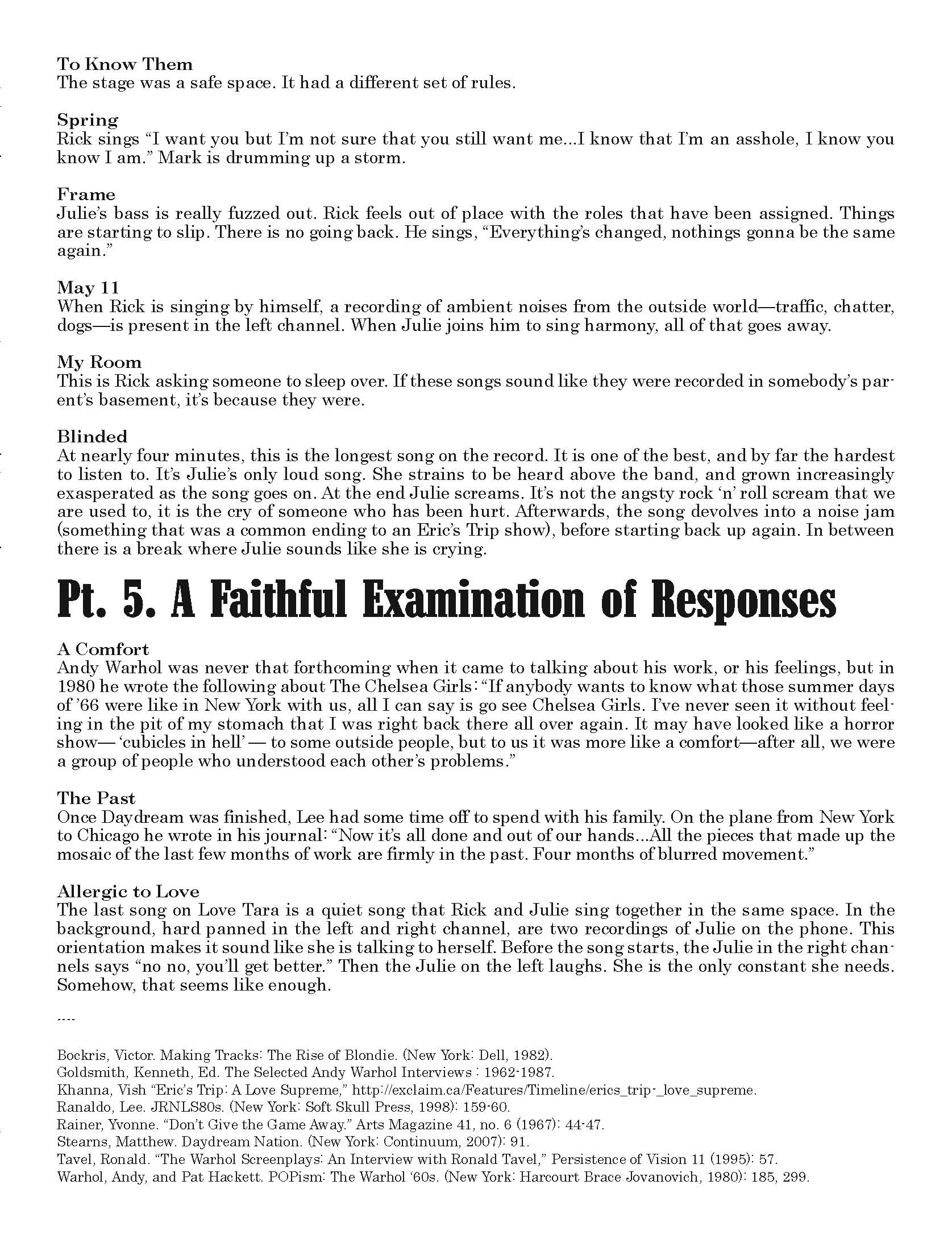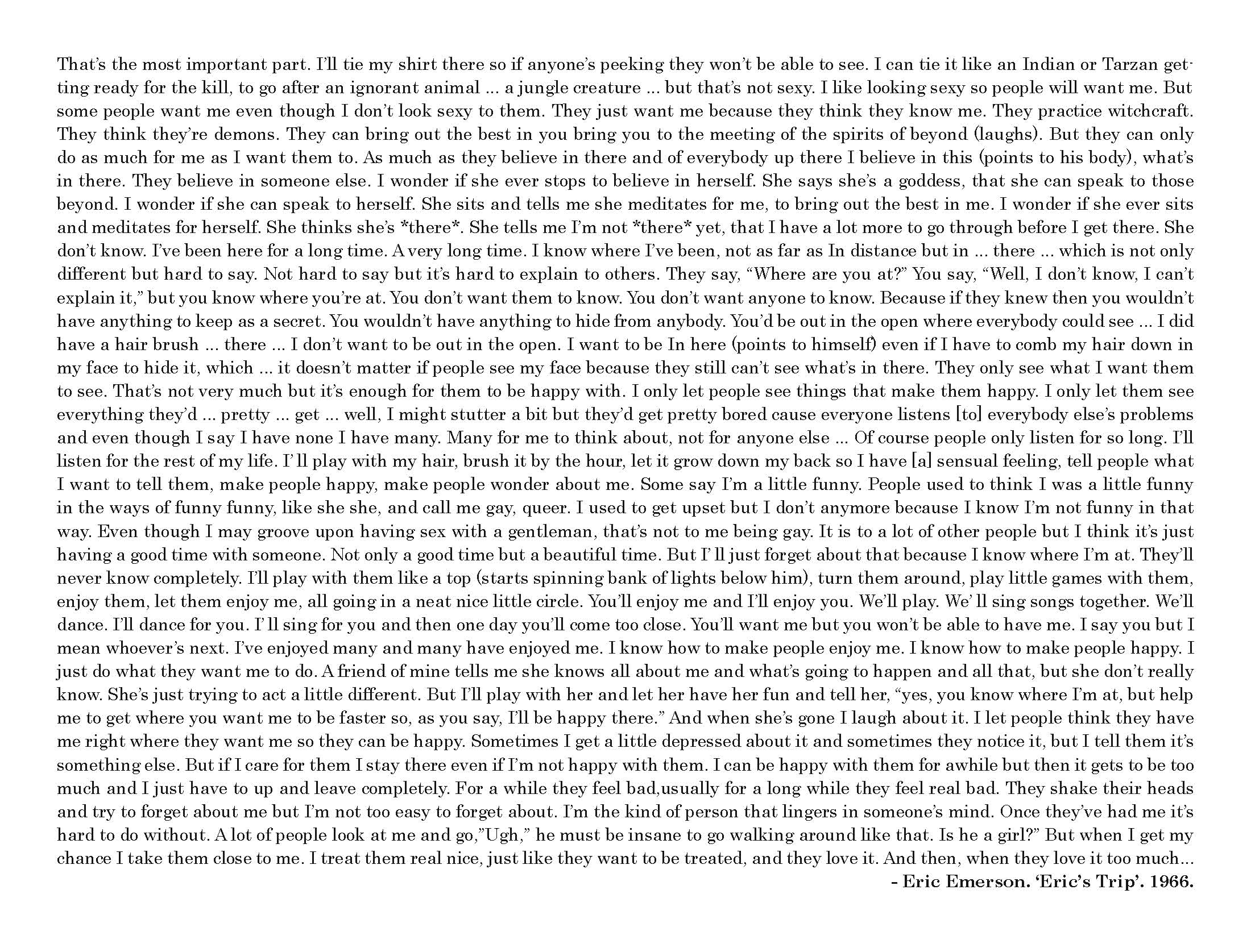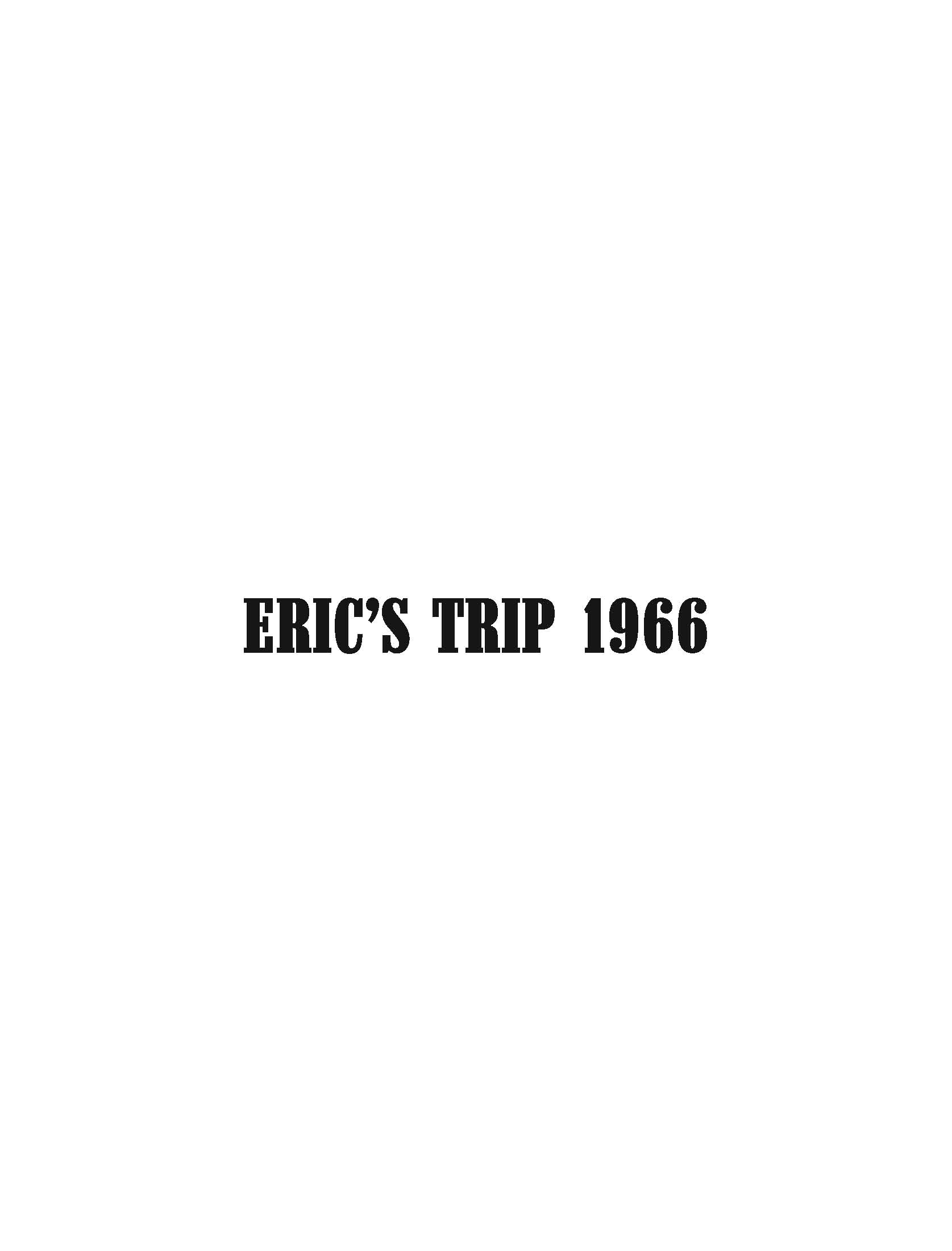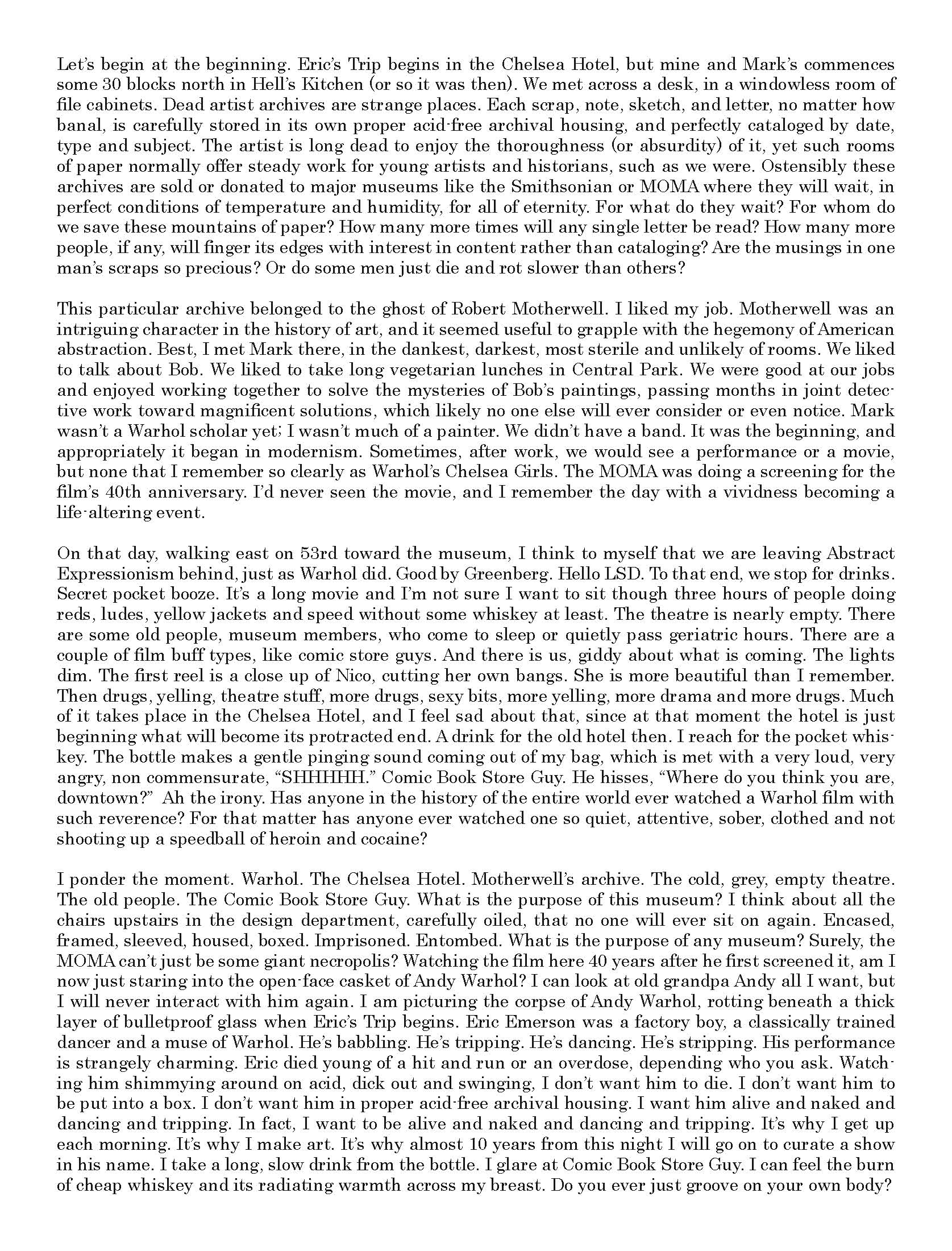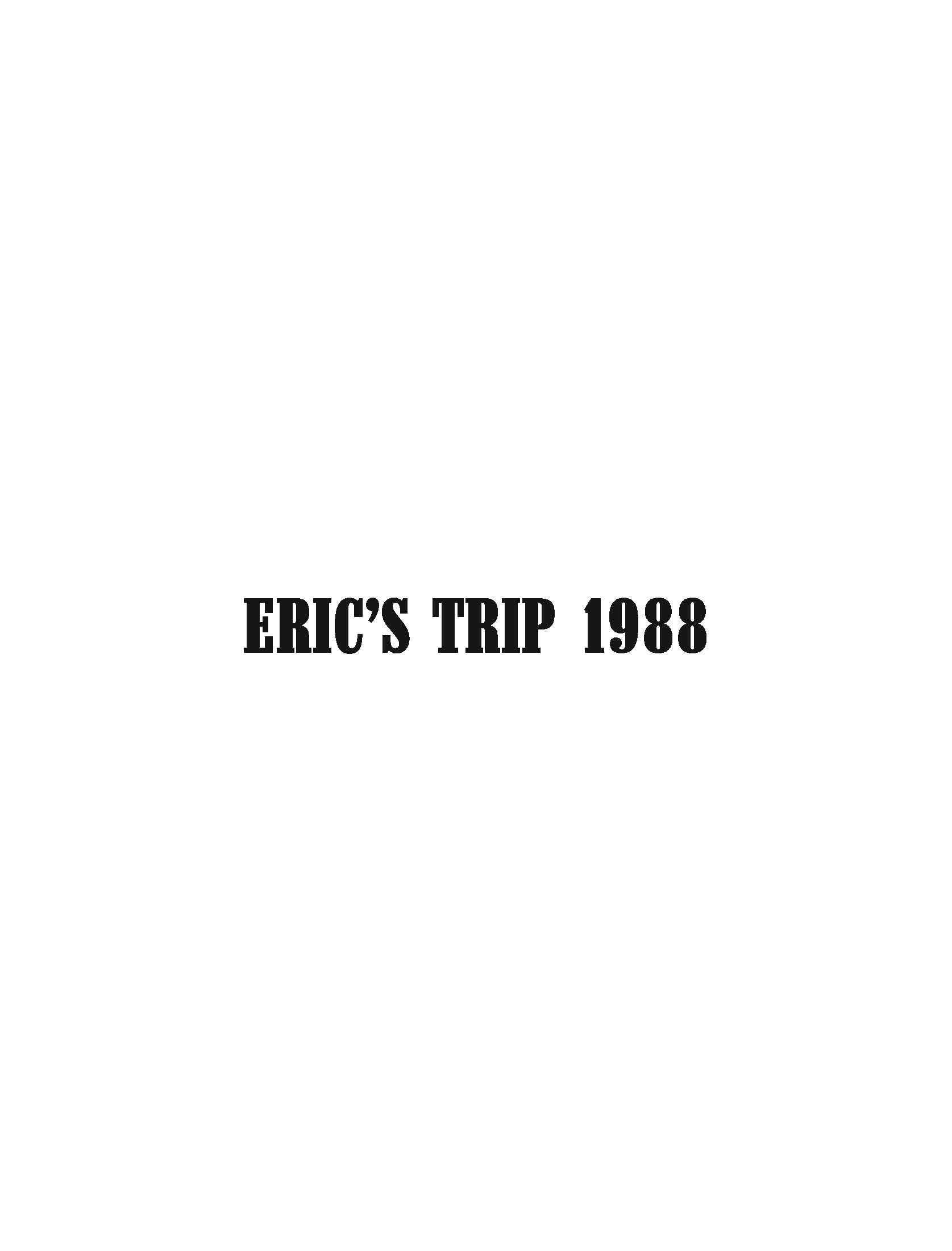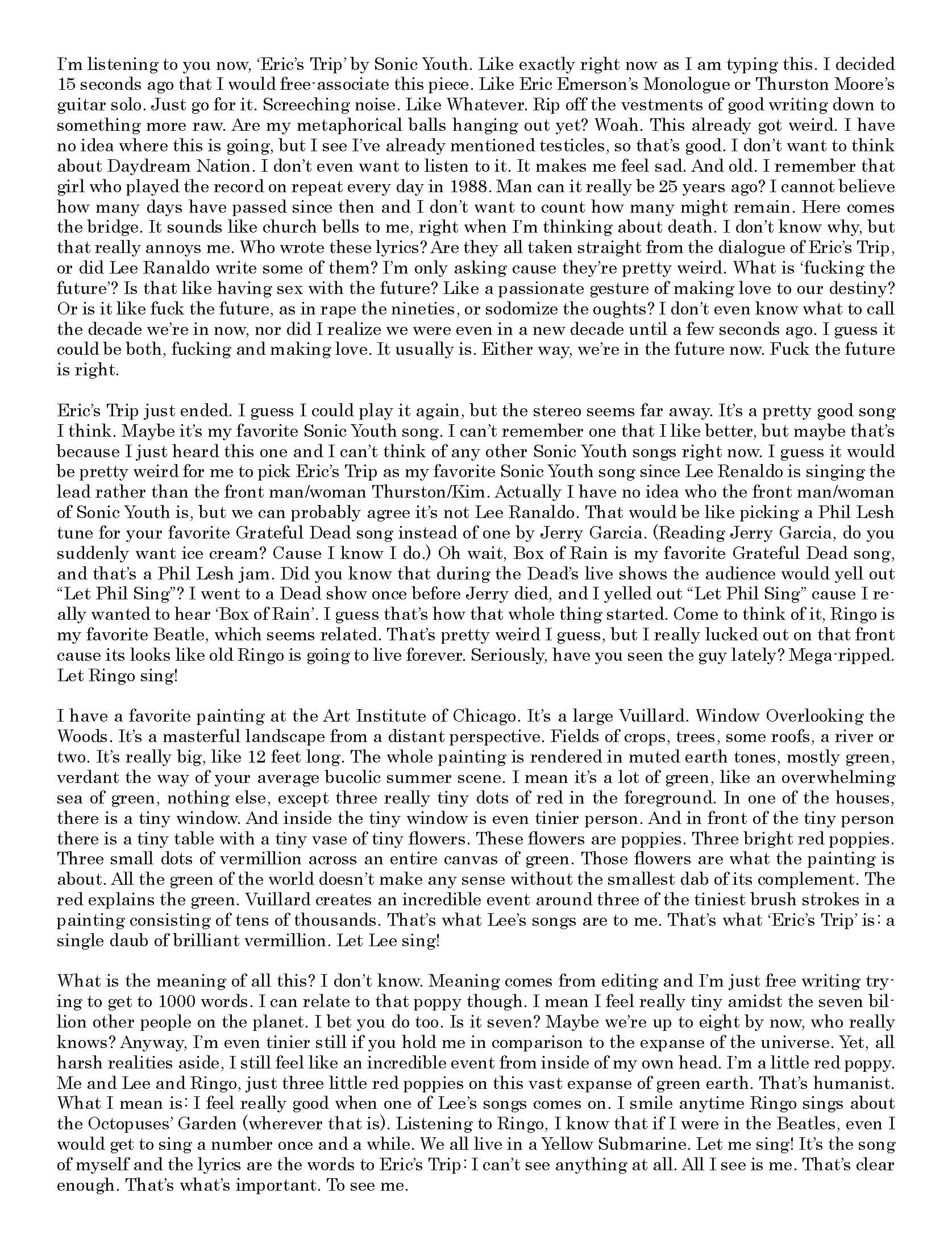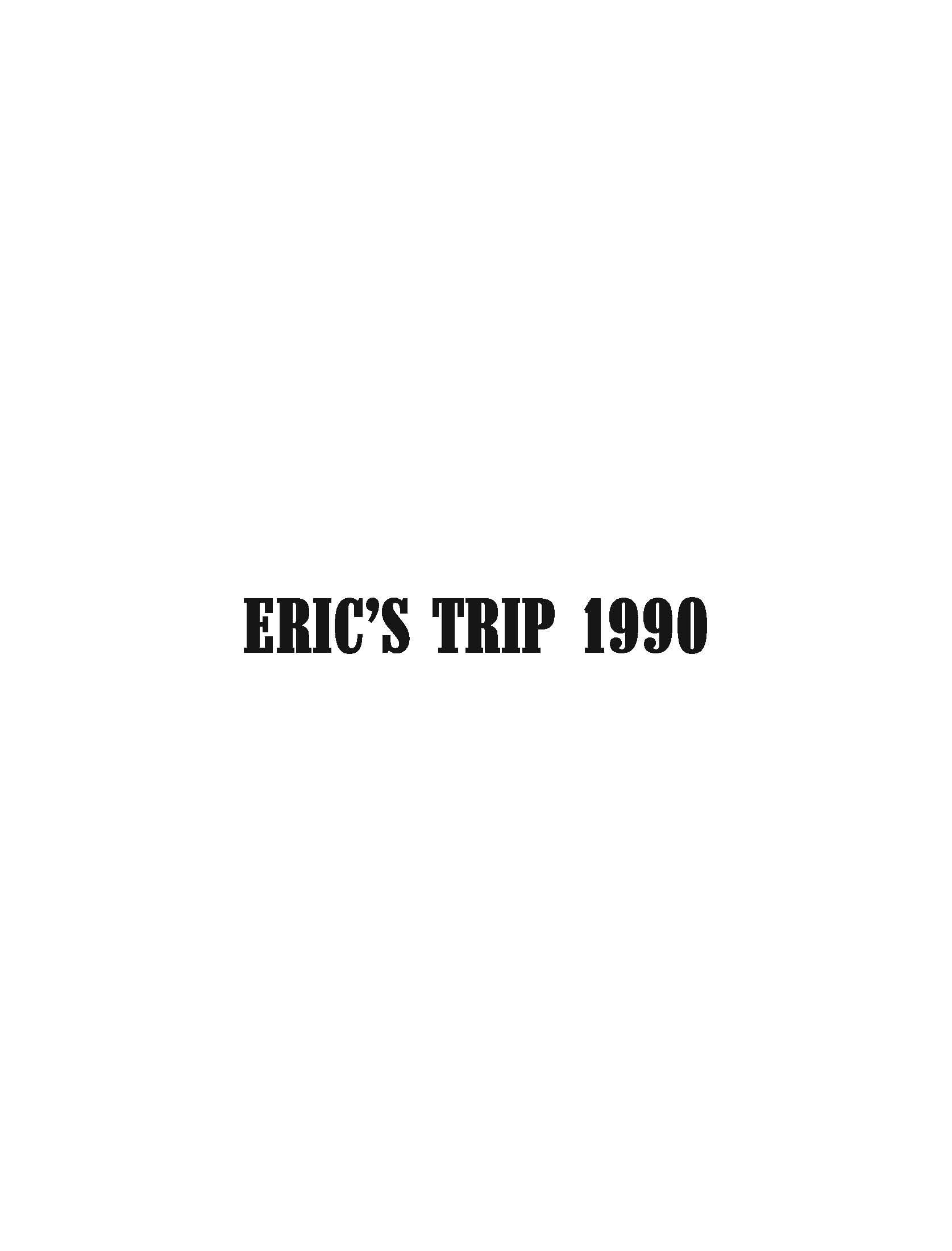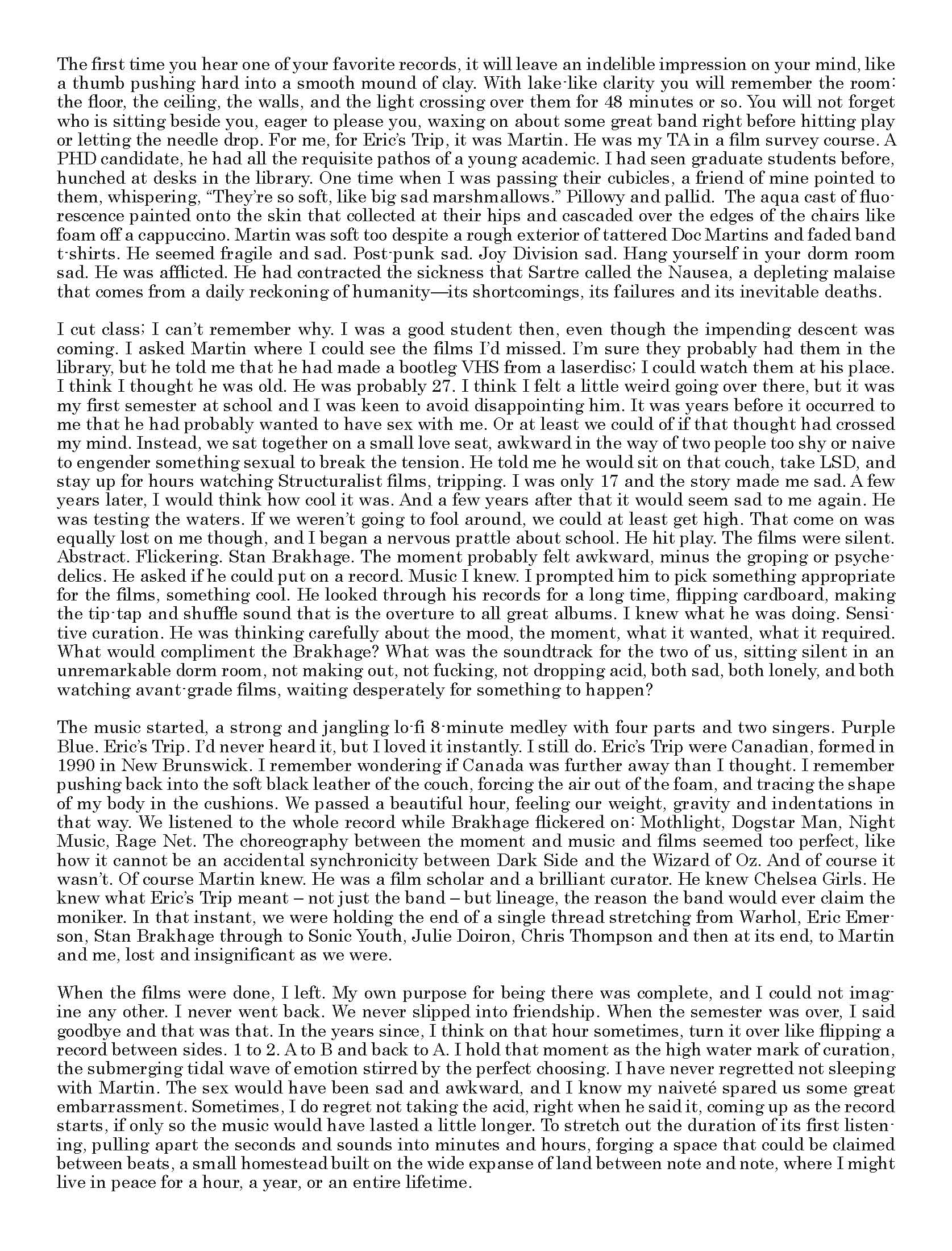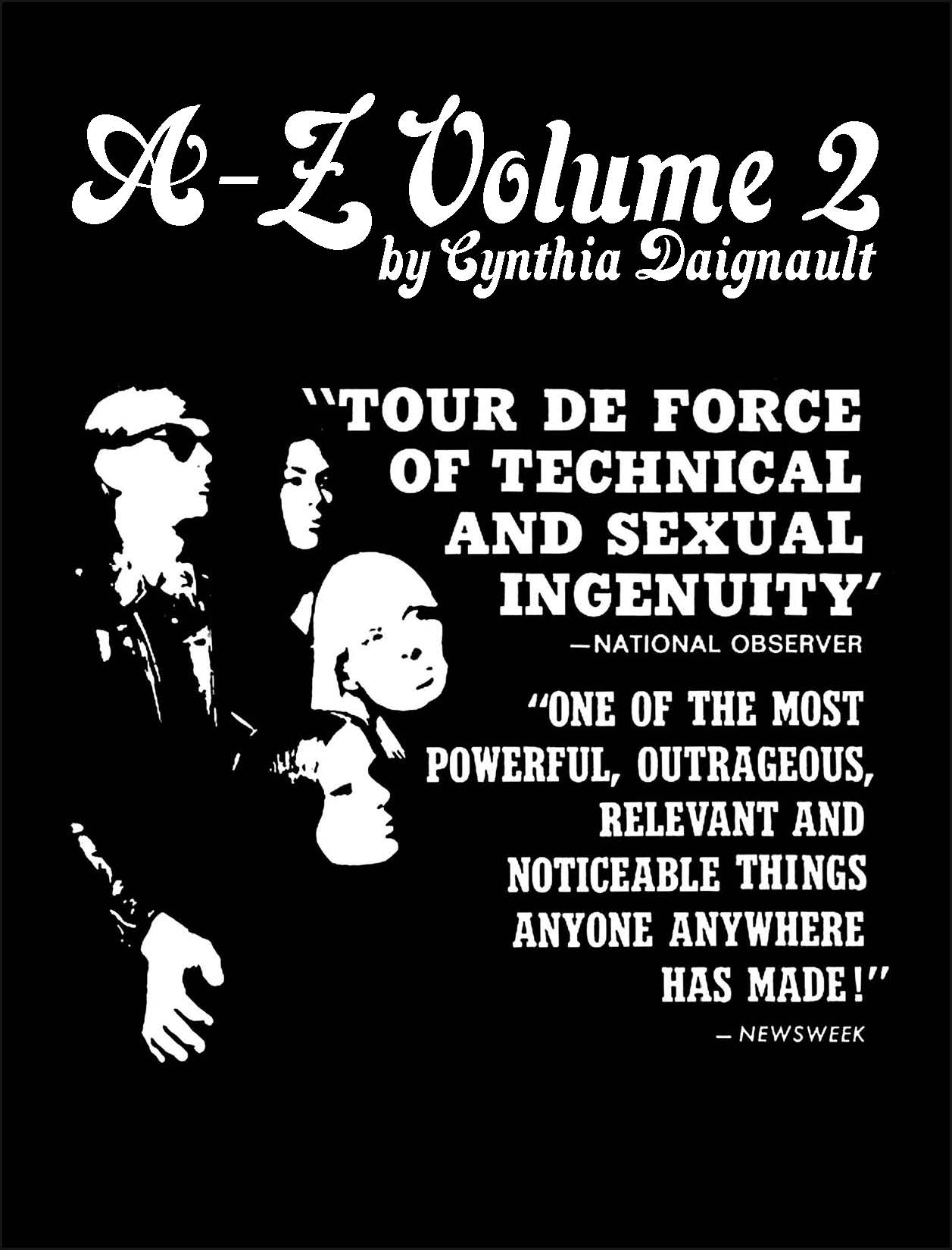Eric's Trip 1966
Let’s begin at the beginning. Eric’s Trip begins in the Chelsea Hotel, but mine and Mark’s commencessome 30 blocks north in Hell’s Kitchen (or so it was then). We met across a desk, in a windowless room of file cabinets. Dead artist archives are strange places. Each scrap, note, sketch, and letter, no matter how banal, is carefully stored in its own proper acid-free archival housing, and perfectly cataloged by date, type and subject. The artist is long dead to enjoy the thoroughness (or absurdity) of it, yet such rooms of paper normally offer steady work for young artists and historians, such as we were. Ostensibly these archives are sold or donated to major museums like the Smithsonian or MOMA where they will wait, in perfect conditions of temperature and humidity, for all of eternity. For what do they wait? For whom do we save these mountains of paper? How many more times will any single letter be read? How many more people, if any, will finger its edges with interest in content rather than cataloging? Are the musings in one man’s scraps so precious? Or do some men just die and rot slower than others?
This particular archive belonged to the ghost of Robert Motherwell. I liked my job. Motherwell was an intriguing character in the history of art, and it seemed useful to grapple with the hegemony of American abstraction. Best, I met Mark there, in the dankest, darkest, most sterile and unlikely of rooms. We liked to talk about Bob. We liked to take long vegetarian lunches in Central Park. We were good at our jobs and enjoyed working together to solve the mysteries of Bob’s paintings, passing months in joint detective work toward magnificent solutions, which likely no one else will ever consider or even notice. Mark wasn’t a Warhol scholar yet; I wasn’t much of a painter. We didn’t have a band. It was the beginning, and appropriately it began in modernism. Sometimes, after work, we would see a performance or a movie, but none that I remember so clearly as Warhol’s Chelsea Girls. The MOMA was doing a screening for the film’s 40th anniversary. I’d never seen the movie, and I remember the day with a vividness becoming a life-altering event.
On that day, walking east on 53rd toward the museum, I think to myself that we are leaving Abstract Expressionism behind, just as Warhol did. Good by Greenberg. Hello LSD. To that end, we stop for drinks. Secret pocket booze. It’s a long movie and I’m not sure I want to sit though three hours of people doing reds, ludes, yellow jackets and speed without some whiskey at least. The theatre is nearly empty. There are some old people, museum members, who come to sleep or quietly pass geriatric hours. There are a couple of film buff types, like comic store guys. And there is us, giddy about what is coming. The lights dim. The first reel is a close up of Nico, cutting her own bangs. She is more beautiful than I remember. Then drugs, yelling, theatre stuff, more drugs, sexy bits, more yelling, more drama and more drugs. Much of it takes place in the Chelsea Hotel, and I feel sad about that, since at that moment the hotel is just beginning what will become its protracted end. A drink for the old hotel then. I reach for the pocket whiskey. The bottle makes a gentle pinging sound coming out of my bag, which is met with a very loud, very angry, non commensurate, “SHHHHH.” Comic Book Store Guy. He hisses, “Where do you think you are, downtown?” Ah the irony. Has anyone in the history of the entire world ever watched a Warhol film with such reverence? For that matter has anyone ever watched one so quiet, attentive, sober, clothed and not shooting up a speedball of heroin and cocaine? I ponder the moment. Warhol. The Chelsea Hotel. Motherwell’s archive. The cold, grey, empty theatre. The old people. The Comic Book Store Guy. What is the purpose of this museum? I think about all the chairs upstairs in the design department, carefully oiled, that no one will ever sit on again. Encased, framed, sleeved, housed, boxed. Imprisoned. Entombed. What is the purpose of any museum? Surely, the MOMA can’t just be some giant necropolis? Watching the film here 40 years after he first screened it, am I now just staring into the open-face casket of Andy Warhol? I can look at old grandpa Andy all I want, but I will never interact with him again. I am picturing the corpse of Andy Warhol, rotting beneath a thick layer of bulletproof glass when Eric’s Trip begins. Eric Emerson was a factory boy, a classically trained dancer and a muse of Warhol. He’s babbling. He’s tripping. He’s dancing. He’s stripping. His performance is strangely charming. Eric died young of a hit and run or an overdose, depending who you ask. Watching him shimmying around on acid, dick out and swinging, I don’t want him to die. I don’t want him to be put into a box. I don’t want him in proper acid-free archival housing. I want him alive and naked and dancing and tripping. In fact, I want to be alive and naked and dancing and tripping. It’s why I get up each morning. It’s why I make art. It’s why almost 10 years from this night I will go on to curate a show in his name. I take a long, slow drink from the bottle. I glare at Comic Book Store Guy. I can feel the burn of cheap whiskey and its radiating warmth across my breast. Do you ever just groove on your own body?
Eric's Trip 1988
I’m listening to you now, ‘Eric’s Trip’ by Sonic Youth. Like exactly right now as I am typing this. I decided 15 seconds ago that I would free-associate this piece. Like Eric Emerson’s Monologue or Thurston Moore’s guitar solo. Just go for it. Screeching noise. Like Whatever. Rip off the vestments of good writing down to something more raw. Are my metaphorical balls hanging out yet? Woah. This already got weird. I have no idea where this is going, but I see I’ve already mentioned testicles, so that’s good. I don’t want to think about Daydream Nation. I don’t even want to listen to it. It makes me feel sad. And old. I remember that girl who played the record on repeat every day in 1988. Man can it really be 25 years ago? I cannot believe how many days have passed since then and I don’t want to count how many might remain. Here comes the bridge. It sounds like church bells to me, right when I’m thinking about death. I don’t know why, but that really annoys me. Who wrote these lyrics? Are they all taken straight from the dialogue of Eric’s Trip, or did Lee Ranaldo write some of them? I’m only asking cause they’re pretty weird. What is ‘fucking the future’? Is that like having sex with the future? Like a passionate gesture of making love to our destiny? Or is it like fuck the future, as in rape the nineties, or sodomize the oughts? I don’t even know what to call the decade we’re in now, nor did I realize we were even in a new decade until a few seconds ago. I guess it could be both, fucking and making love. It usually is. Either way, we’re in the future now. Fuck the future is right.
Eric’s Trip just ended. I guess I could play it again, but the stereo seems far away. It’s a pretty good song I think. Maybe it’s my favorite Sonic Youth song. I can’t remember one that I like better, but maybe that’s because I just heard this one and I can’t think of any other Sonic Youth songs right now. I guess it would be pretty weird for me to pick Eric’s Trip as my favorite Sonic Youth song since Lee Renaldo is singing the lead rather than the front man/woman Thurston/Kim. Actually I have no idea who the front man/woman of Sonic Youth is, but we can probably agree it’s not Lee Ranaldo. That would be like picking a Phil Lesh tune for your favorite Grateful Dead song instead of one by Jerry Garcia. (Reading Jerry Garcia, do you suddenly want ice cream? Cause I know I do.) Oh wait, Box of Rain is my favorite Grateful Dead song, and that’s a Phil Lesh jam. Did you know that during the Dead’s live shows the audience would yell out “Let Phil Sing”? I went to a Dead show once before Jerry died, and I yelled out “Let Phil Sing” cause I really wanted to hear ‘Box of Rain’. I guess that’s how that whole thing started. Come to think of it, Ringo is my favorite Beatle, which seems related. That’s pretty weird I guess, but I really lucked out on that front cause its looks like old Ringo is going to live forever. Seriously, have you seen the guy lately? Mega-ripped. Let Ringo sing!
I have a favorite painting at the Art Institute of Chicago. It’s a large Vuillard. Window Overlooking the Woods. It’s a masterful landscape from a distant perspective. Fields of crops, trees, some roofs, a river or two. It’s really big, like 12 feet long. The whole painting is rendered in muted earth tones, mostly green, verdant the way of your average bucolic summer scene. I mean it’s a lot of green, like an overwhelming sea of green, nothing else, except three really tiny dots of red in the foreground. In one of the houses, there is a tiny window. And inside the tiny window is even tinier person. And in front of the tiny person there is a tiny table with a tiny vase of tiny flowers. These flowers are poppies. Three bright red poppies. Three small dots of vermillion across an entire canvas of green. Those flowers are what the painting is about. All the green of the world doesn’t make any sense without the smallest dab of its complement. The red explains the green. Vuillard creates an incredible event around three of the tiniest brush strokes in a painting consisting of tens of thousands. That’s what Lee’s songs are to me. That’s what ‘Eric’s Trip’ is: a single daub of brilliant vermillion. Let Lee sing!
What is the meaning of all this? I don’t know. Meaning comes from editing and I’m just free writing trying to get to 1000 words. I can relate to that poppy though. I mean I feel really tiny amidst the seven billion other people on the planet. I bet you do too. Is it seven? Maybe we’re up to eight by now, who really knows? Anyway, I’m even tinier still if you hold me in comparison to the expanse of the universe. Yet, all harsh realities aside, I still feel like an incredible event from inside of my own head. I’m a little red poppy. Me and Lee and Ringo, just three little red poppies on this vast expanse of green earth. That’s humanist. What I mean is: I feel really good when one of Lee’s songs comes on. I smile anytime Ringo sings about the Octopuses’ Garden (wherever that is). Listening to Ringo, I know that if I were in the Beatles, even I would get to sing a number once and a while. We all live in a Yellow Submarine. Let me sing! It’s the song of myself and the lyrics are the words to Eric’s Trip: I can’t see anything at all. All I see is me. That’s clear enough. That’s what’s important. To see me.
Eric’s Trip 1990
The first time you hear one of your favorite records, it will leave an indelible impression on your mind, like a thumb pushing hard into a smooth mound of clay. With lake-like clarity you will remember the room: the floor, the ceiling, the walls, and the light crossing over them for 48 minutes or so. You will not forget who is sitting beside you, eager to please you, waxing on about some great band right before hitting play or letting the needle drop. For me, for Eric’s Trip, it was Martin. He was my TA in a film survey course. A PHD candidate, he had all the requisite pathos of a young academic. I had seen graduate students before, hunched at desks in the library. One time when I was passing their cubicles, a friend of mine pointed to them, whispering, “They’re so soft, like big sad marshmallows.” Pillowy and pallid. The aqua cast of fluo- rescence painted onto the skin that collected at their hips and cascaded over the edges of the chairs like foam off a cappuccino. Martin was soft too despite a rough exterior of tattered Doc Martins and faded band t-shirts. He seemed fragile and sad. Post-punk sad. Joy Division sad. Hang yourself in your dorm room sad. He was afflicted. He had contracted the sickness that Sartre called the Nausea, a depleting malaise that comes from a daily reckoning of humanity—its shortcomings, its failures and its inevitable deaths.
I cut class; I can’t remember why. I was a good student then, even though the impending descent was coming. I asked Martin where I could see the films I’d missed. I’m sure they probably had them in the library, but he told me that he had made a bootleg VHS from a laserdisc; I could watch them at his place. I think I thought he was old. He was probably 27. I think I felt a little weird going over there, but it was my first semester at school and I was keen to avoid disappointing him. It was years before it occurred to me that he had probably wanted to have sex with me. Or at least we could of if that thought had crossed my mind. Instead, we sat together on a small love seat, awkward in the way of two people too shy or naive to engender something sexual to break the tension. He told me he would sit on that couch, take LSD, and stay up for hours watching Structuralist films, tripping. I was only 17 and the story made me sad. A few years later, I would think how cool it was. And a few years after that it would seem sad to me again. He was testing the waters. If we weren’t going to fool around, we could at least get high. That come on was equally lost on me though, and I began a nervous prattle about school. He hit play. The films were silent. Abstract. Flickering. Stan Brakhage. The moment probably felt awkward, minus the groping or psyche- delics. He asked if he could put on a record. Music I knew. I prompted him to pick something appropriate for the films, something cool. He looked through his records for a long time, flipping cardboard, making the tip-tap and shuffle sound that is the overture to all great albums. I knew what he was doing. Sensi- tive curation. He was thinking carefully about the mood, the moment, what it wanted, what it required. What would compliment the Brakhage? What was the soundtrack for the two of us, sitting silent in an unremarkable dorm room, not making out, not fucking, not dropping acid, both sad, both lonely, and both watching avant-grade films, waiting desperately for something to happen?
The music started, a strong and jangling lo-fi 8-minute medley with four parts and two singers. Purple Blue. Eric’s Trip. I’d never heard it, but I loved it instantly. I still do. Eric’s Trip were Canadian, formed in 1990 in New Brunswick. I remember wondering if Canada was further away than I thought. I remember pushing back into the soft black leather of the couch, forcing the air out of the foam, and tracing the shape of my body in the cushions. We passed a beautiful hour, feeling our weight, gravity and indentations in that way. We listened to the whole record while Brakhage flickered on: Mothlight, Dogstar Man, Night Music, Rage Net. The choreography between the moment and music and films seemed too perfect, like how it cannot be an accidental synchronicity between Dark Side and the Wizard of Oz. And of course it wasn’t. Of course Martin knew. He was a film scholar and a brilliant curator. He knew Chelsea Girls. He knew what Eric’s Trip meant – not just the band – but lineage, the reason the band would ever claim the moniker. In that instant, we were holding the end of a single thread stretching from Warhol, Eric Emer- son, Stan Brakhage through to Sonic Youth, Julie Doiron, Chris Thompson and then at its end, to Martin and me, lost and insignificant as we were.
When the films were done, I left. My own purpose for being there was complete, and I could not imag- ine any other. I never went back. We never slipped into friendship. When the semester was over, I said goodbye and that was that. In the years since, I think on that hour sometimes, turn it over like flipping a record between sides. 1 to 2. A to B and back to A. I hold that moment as the high water mark of curation, the submerging tidal wave of emotion stirred by the perfect choosing. I have never regretted not sleeping with Martin. The sex would have been sad and awkward, and I know my naiveté spared us some great embarrassment. Sometimes, I do regret not taking the acid, right when he said it, coming up as the record starts, if only so the music would have lasted a little longer. To stretch out the duration of its first listen- ing, pulling apart the seconds and sounds into minutes and hours, forging a space that could be claimed between beats, a small homestead built on the wide expanse of land between note and note, where I might live in peace for a hour, a year, or an entire lifetime.

